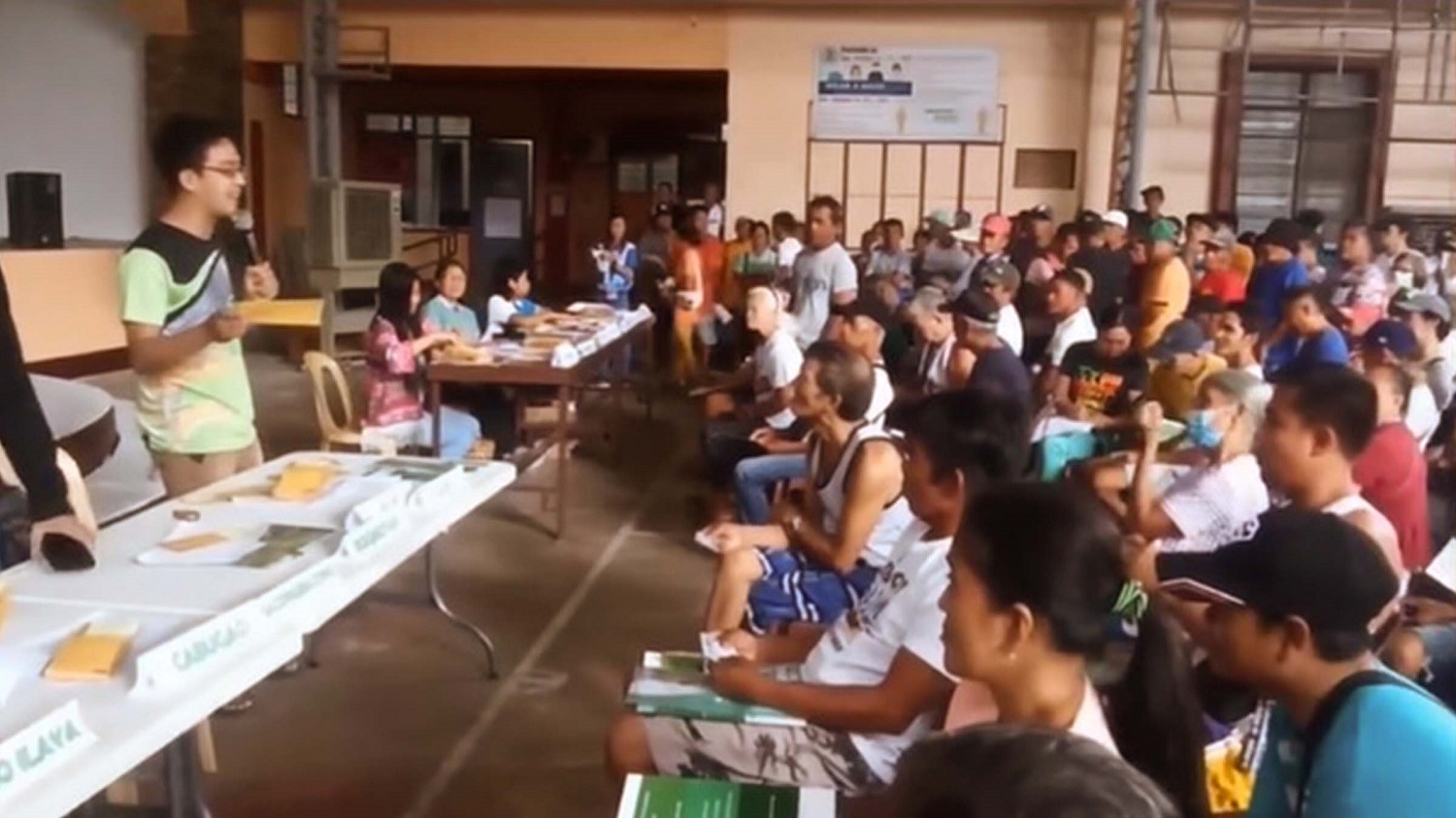MARINDUQUE – This heart-shaped island province is situated at the geographical center of the Philippines based on the grandparent of all Philippine geodetic surveys, the Luzon Datum of 1911.
The exact central spot is at the top of the highest hill in the town of Mogpog, where the national historical landmarks at Station Balanacan was developed by the provincial government into a tourist destination and inaugurated in 2011 as the so-called “Heart of the Philippine Archipelago”.
Being the smallest province in the Southern Tagalog region of Luzon, Marinduque is comprised by six municipalities with a total area of 953 square kilometers and a combined population of 234,521 as of the 2015 census. Its capital is the town of Boac, a first-class municipality that hosts the province’s main business district as well as most of its commercial and educational institutions.
Rice production and coconut growing are Marinduque’s primary industries. Fishing, handicraft exports, and butterfly farming also contributes significantly to the provincial economy. The local tourism industry perk up during the Lenten season when the centuries-old Moriones Festival is staged annually in the towns of Boac, Gasan, Mogpog, and Santa Cruz.
According to a recent report from the Department of Science and Technology’s, Philippine Council for Agriculture, Aquatic, and Natural Resources Research and Development (PCAARRD), coconut remains to be one of the country’s major export crops and is known as the “tree of life”.
However, there has been no significant improvement in the coconut industry for the past years, and the study points to the controversial “coco levy fund” from the martial law era as a factor that has adversely affected the industry.
“In February 2019, President Rodrigo R. Duterte vetoed the consolidated bill creating the Coconut Farmers and Industry Trust Fund and the bill strengthening the Philippine Coconut Authority. These bills are deemed to address that stagnant growth of the coconut industry, “the PCAARRD report stated.
Huge opportunities were anticipated with the enactment of these bills, which were seen as timely measures in reviving an industry that has long been an important pillar of the Philippine agriculture against the backdrop of decreasing copra prices and declining coconut oil production.
Despite these challenges, some local firms still continue to promote the value of coconut products and one of them is Marinduque Land Corp. (MLC), an agri-based company domiciled in the municipality of Gasan near Marinduque’s domestic airport on the western side of this island.
I got to know MLC owners Archie Armada and Sushie Muhi during the Pistahan Festival in San Francisco, California last month. They had an exhibit booth showcasing their health and wellness products under two brands: Heaven’s Cure for the food line and Heaven’s Care for the cosmetics line. At that time, my jet lag had not worn off and their “sweet crystal oil” product made me feel so much better.
On this current trip to the island province for another project, I visited MLC’s productions plant in Gasan. The virgin coconut oil (VCO) factory produced several variants of handmade VCO soaps and dietary supplements plus a “ginger coco rub” made with turmeric herbal extract and beeswax from ligwan or native honeybees.
“We envision our company to be the catalyst of natural farming in Marinduque. We aim to integrate all aspects of coconut farming and the species interdependent on its produce,” said Mr. Armada. MLC exports its products to such countries as Japan, South Korea, and the US.
Last week, MLC signed a strategic agreement appointing Medical Center Trading Corp. (MCTC) a wholesaler of sweet crystal oil in Philippine market. MCTC is a subsidiary of the Mercury Drug Group of Companies and has 20 branches in key cities nationwide. Other MCLC products are available through MyOrientalStore.com and Lazada.
“Our mission is to help uplift the standard of living of the most neglected among the farmers,” Ms. Muhi disclosed, referring to the island’s coconut farmers. “We believe that coconut is heaven-sent not only for a variety of physical ailments but also to cure the economic hardship afflicting our coconut farmers and take care of their overall well-being,” she added.
This jibes with the advocacy of PCAARRD to achieve inclusive development and reach the full potential of the Philippines coconut industry, translating to welfare improvement on the lives of millions of Filipinos.
This story was first published on Business World, “Inclusive development for the coconut industry”.
About the Author:
J. Albert Gamboa is CFO of the Asian Center for Legal Excellence and Chairman of the FINEX Golden Jubilee Book Project.


